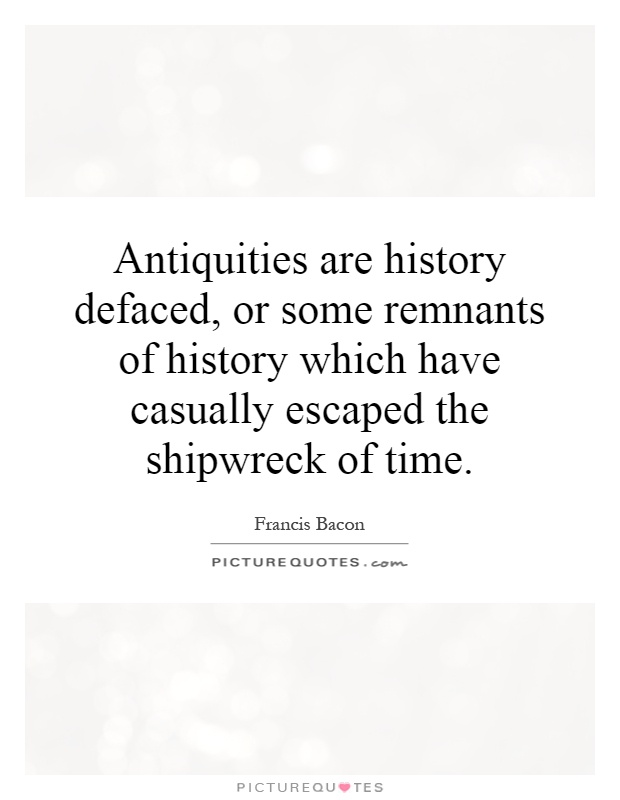Antiquities are history defaced, or some remnants of history which have casually escaped the shipwreck of time

Antiquities are history defaced, or some remnants of history which have casually escaped the shipwreck of time
Francis Bacon, the renowned English philosopher, statesman, and essayist, once famously remarked that antiquities are "history defaced, or some remnants of history which have casually escaped the shipwreck of time." This profound statement by Bacon sheds light on the significance of antiquities in preserving and understanding the past.Antiquities refer to ancient objects, artifacts, and structures that have survived the test of time and provide valuable insights into the history, culture, and civilization of bygone eras. These remnants of the past serve as tangible links to our ancestors and offer a glimpse into their way of life, beliefs, and achievements. However, Bacon's assertion that antiquities are "history defaced" suggests that these artifacts may have been altered, damaged, or lost over the centuries, thereby distorting our understanding of the past.
The concept of antiquities as "some remnants of history which have casually escaped the shipwreck of time" underscores the fragility and impermanence of historical artifacts. Countless ancient treasures have been lost to wars, natural disasters, looting, and neglect, making the surviving antiquities all the more precious and invaluable. These artifacts serve as windows into the past, allowing us to piece together the puzzle of history and gain a deeper appreciation for the achievements and struggles of our predecessors.
Bacon's perspective on antiquities also raises questions about the authenticity and reliability of historical artifacts. As artifacts are passed down through generations and change hands over time, their provenance and accuracy may become clouded. Scholars and archaeologists must carefully study and analyze antiquities to separate fact from fiction and uncover the true stories behind these ancient relics.












 Friendship Quotes
Friendship Quotes Love Quotes
Love Quotes Life Quotes
Life Quotes Funny Quotes
Funny Quotes Motivational Quotes
Motivational Quotes Inspirational Quotes
Inspirational Quotes